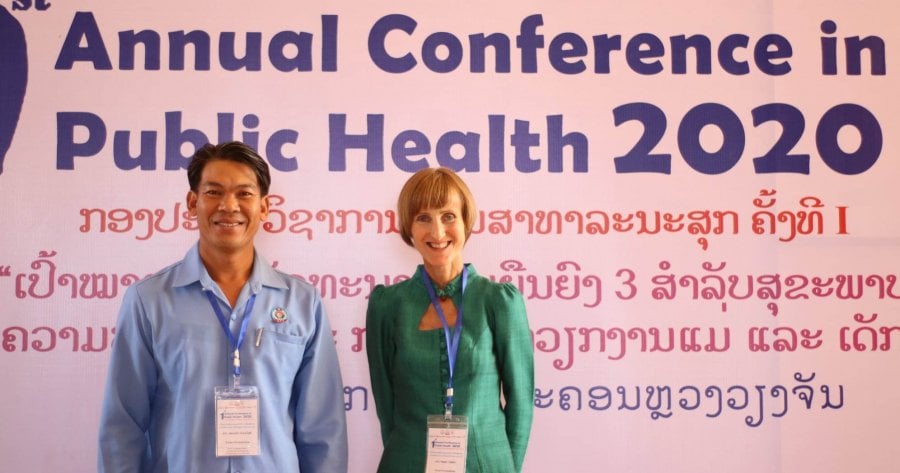Alumni Profile: Helen Catton
15 February 2021 London School of Hygiene & Tropical Medicine London School of Hygiene & Tropical Medicine https://lshtm.ac.uk/themes/custom/lshtm/images/lshtm-logo-black.png
Why did you decide to study at LSHTM?
I knew about the tropical nursing course before becoming a nurse; my first degree was psychology. However, after doing extensive volunteer work in Asia in the health sector, I knew I wanted to study tropical nursing. Therefore, I had to go back to school and re-train as a nurse before I could apply for the LSHTM course (which I did).
How has your degree at LSHTM complemented your career?
The tropical nursing course provided me with skills in critical thinking and taught me how to be resourceful and creative in the field. It enabled me to understand effective approaches to working in partnership with communities and a deep awareness of cross-cultural issues. Focused technical sessions on key tropical diseases, like malaria, aided my work when I was on the border of Myanmar/Thailand in a malaria endemic area.
Were the relationships you formed at LSHTM useful – in what way?
Yes. I sat together in lectures with a great colleague, Esther Walker. We encouraged each other through the course and after we completed she went on to work in Africa in palliative care and I went to Asia working with children and primary health care. We shared experiences along the way and continue to keep in touch 14 years later.
Please summarise your achievements over the years and how you feel about them?
Having worked on the border of Thailand and Myanmar in primary health care, I then moved to Cambodia. In Cambodia, I worked for Angkor Hospital for Children and led the Satellite hospital which was a paediatric hospital in partnership with the government district hospital. After six years, I was able to hand over the leadership to the Khmer staff. I have been in Lao with Save the Children for five years working in a Primary Health Care program. My role has been focused on Maternal and New-born care. The achievements are attributable to our partners, the Lao government health staff who do the direct implementation of the work, and the community volunteers who have led our SBC approach. I think I have learned more than I have provided. I feel very privileged to have had so many experiences and opportunities.
Every year I return to the UK and visit Japan where I share my experiences by giving an annual lecture on Global Health to students in Southampton University where I studied Nursing and provide a seminar in Tokyo at the Red Cross College of Nursing and Midwifery. In this small way, I am able to share some of the experiences I have been fortunate to have benefited from and hopefully inspire the new generation of health professionals in global health.
What do you hope to further achieve in your field in the future?
I hope to continue to work in South East Asia and share the skills and knowledge I have with local staff. Seeing their progress, development and independence is the greatest achievement.
Have you connected with alumni since leaving LSHTM? And if so, how did you get involved?
I have a few friends that are LSHTM alumni. I also reached out to the alumni group in Japan as I make annual visits to Tokyo. I was lucky to meet Tomoko Kodama in Tokyo and share experiences as a result. We talked for hours and I have been to visit her clinic outside of Tokyo.
What advice do you have for current students?
The opportunity to study at LSHTM is unique, so maximise fully and draw on the resources and experiences of fellow students as well as the lecturers. Ask questions and be pro-active.
Do you have any stand out memories from LSHTM?
My stand out memory and inspiration is Claire Bertschinger, the course lead. Her courage, stories and experience, so generously shared, are something I will never forget. Her lessons and words are very present in my mind as I live and work in the field and help ground me to what is really important.
How has COVID-19 affected your work?
Lao has been very minimally affected by COVID directly so far. Strict lock-down and border closures have ensured that cases are low. However, the secondary effects are being felt with reduced food security so the implications for nutrition and maternal child health are concerning.
Want to share your story? Email alumni@lshtm.ac.uk.